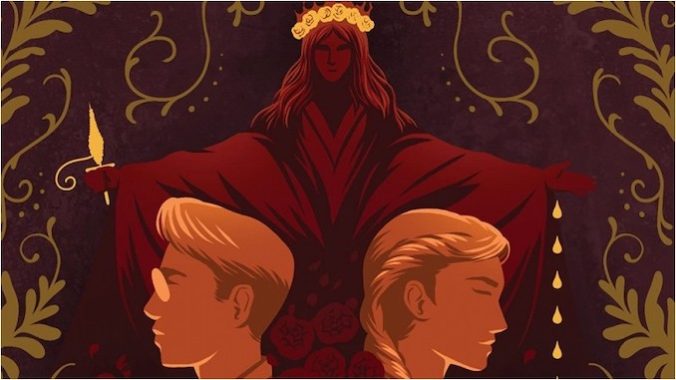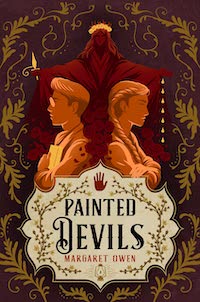Painted Devils: An Adventurous Sequel With a Surprisingly Emotional Heart

For those who don’t know, Margaret Owen’s Little Thieves is essentially a perfect fantasy adventure romp, featuring a feisty heroine, a unique twist on a familiar fairytale framework, rich worldbuilding, and a unique hierarchical system of gods and other immortal beings. But, thankfully, it’s also the sort of book that, while it ends in such a way that makes the story it’s telling feel complete, it also leaves the door open for further adventures with its characters. And while the sequel Painted Devils is a natural continuation of its predecessor’s story—it literally picks up just months later—it also serves as a clever and careful emotional expansion of the original’s world.
Much of Painted Devils will feel familiar—it includes everything from fake gods and real poltergeists to haunted dolls, cults, shady nobles, and untrustworthy clerics. There are heists and sidequests and several intricate ancillary legends whose lessons deftly tie back into the novel’s larger story. And Vanja Schmidt remains as entertaining a heroine as ever: Sarcastic, selfish, hard-edged, self-destructive, and frequently rude, she’s no one’s idea of a damsel in distress. Yet, in this sequel, it’s more clear than ever that her rough exterior is both a survival instinct and the product of trauma, and Owen digs deep into her heroine’s mental and emotional healing.

Because despite her success in Minjka, her burgeoning relationship with Junior Prefect Emeric Conrad, and her reclamation of her own identity and name, Vanja is still adrift emotionally, convinced that she’s not good enough for any of the people in her life and certain that she ruins everything she touches. Rather than keep her word to Emeric, she abandons their plans to meet in Hellingbrucke, telling herself that she doesn’t deserve his affection until she can prove she’s something more—something better—than a thief and a liar. This decision has consequences both miraculous and disastrous, and will ultimately force Vanja to face her own inner demons in unexpected ways. How do you learn to trust others after a life of abandonment? To trust yourself after years of being told nothing you do will ever be good enough? To love when you think you don’t deserve it in return? That’s the real emotional linchpin at the heart of this series, and no matter how many potential goddesses or tragic princesses her story may involve, Owen is careful to ground everything in Vanja’s emotional journey. (Which, it should be said, definitely doesn’t always happen in a straight line.)
-

-

-

-

-

-

-

-

-

-

-

-

-

-

-

-

-

-

-

-

-

-

-

-

-

-

-

-

-

-

-

-

-

-

-

-

-

-

-

-








































